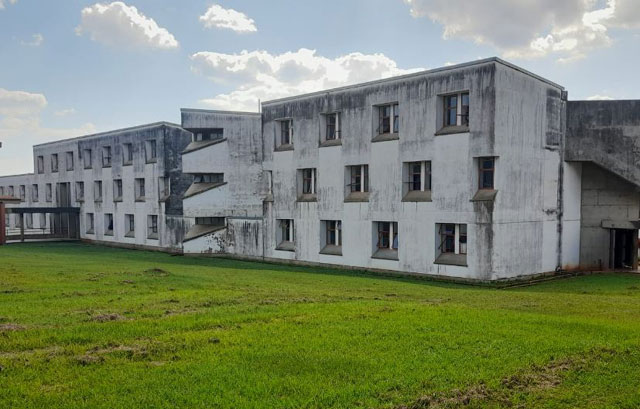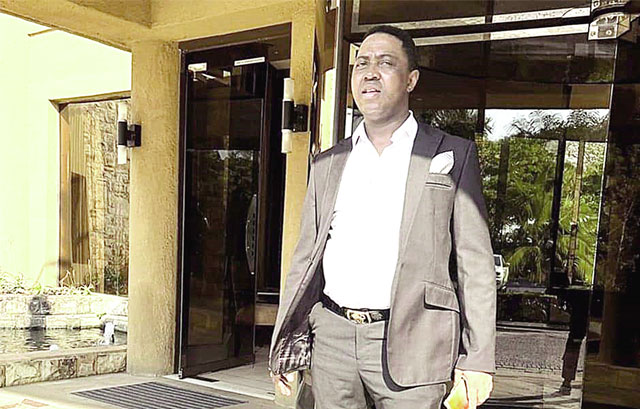By SIBUSISO DLAMINI | 2024-10-18
Reports that American intelligence officials quietly supported plans by a US American military contractor to purchase NSO Group, the cyber hacking firm responsible for Pegasus, the famous spyware that can be covertly installed on mobile phones emerged this past week.
White House officials said they were ‘outraged to learn about the said negotiations’ of course, stating that ‘any attempt by American defence firms to purchase a blacklisted company would be met with serious resistance’. This response was predictable and quite far from convincing.
Instead, it is clear evidence of the efforts by governments to subject unsuspecting members of the public to mass surveillance under the guise of ‘strengthening cyber-security’. It reminded me of the landmark report 2013 by the United Nations (UN) Special Rapporteur on freedom of opinion and expression Frank LaRue to the Human Rights Council, where the inter governmental organisation,
forthefirsttime,recognisedtheimpactofStatesurveillanceonfreeexpression and other human rights. LaRue’s report highlighted the serious implications of surveillance on human rights, and how
mass surveillance was not just about gathering information on the citizenry, but also about suppressing the citizens’ ideas, thoughts as well as controlling their actions and words.
Nine years after that ground-breaking report, back home, newly-appointed Government Spokesperson Alpheous Nxumalo released a rather controversial press statement about a fortnight back, ‘advising’ the public to be responsible in their usage of social media,’ and to ‘avoid being guilty either by association or abetting activities which seek to undermine peace and security’.
Excuse me, what? Such a statement coming barely a year after government shut-down the internet during the country’s most violent political impasse to date, in the name of national security, surely justifies suspicions human rights defenders have about the State gearing up to crackdown on social media activists under the pretext of national security.
In this new-age, almost every actonline is a form of expression, therefore, government is working against itself in the quest to selling itself as remodelled when the spokesperson sees it fit to release a statement clearly threatening the public’s right to freedom of expression.
The last I checked, the Constitution of this land grants all citizens of this country the right to freely express their views,whether political or religious on any platform– and this includes social media.
This is why Godfrey Exalto, the Royal Eswatini National Airways (RENAC) accountant won after taking his employers to court after the company instituted disciplinary charges against him for ‘using social media irresponsibly,’ right?
That is right to freedom of expression! To refresh the memories of some who might have forgotten or overlooked the case, back in 2019, government purchased a fleet of cars, which typically was met with a huge public outcry, so like many other citizens, Exalto took to social media to give his opinion on the matter.
RIGHT TO FREE SPEECH INALIENABLE
16 SundayObserver July 3, 2022 NEWS He wrote - ‘We can go on and on, but nothing will change, because there is no will to change, because "kutokhala umzaqa”.
Dictatorship 101.’ This did not go down well with his employers, a State-owned enterprise under the ministry of public works and transport, who described the statement as labelling the ‘Eswatini system of government as a dictatorship’, and claimed it ‘brought the corporation into disrepute in the mind ofher shareholders’.
After initial skirmishes at the disciplinary hearing, Exalto eventually brought an urgent application to the Industrial Court, where he requested to interdict the disciplinary hearing and set aside the ruling of the hearing. While waiting for the Industrial Court to hear
the matter, he also brought a further application, this time requesting that the matter be referred to the High Court.
His wish was granted and albeit the bad reputation this country has with regards to freedom of expression, earlier this year, the High Court came to the conclusion that the remarks by Exalto amounted to a constitutionally protected, legitimate opinion under the Constitution and international
law.
Three judges of the High Court heard matter; Justices Titus Mlangeni, Qinisile Mabuza and Mzwandile Fakudze.
When issuing the ruling, the majority Judges Titus Mlangeni and Qinisile Mabuza, reflected on the High Court’s constitutional responsibility to ‘enforce the fundamental human rights and freedoms guaranteed by the Constitution’ and suggested that the High Court had to ‘embrace every opportunity to breathe life into the relatively new Constitution and give meaning to the rights that it confers.
The court also accepted that while elsewhere, courts had had a great deal to say on the subject, it ‘had no precedent in this jurisdiction’ before quoting from several South Africa decisions, the African Charter on Human and Peoples’ Rights and the African Commission on Human and Peoples’ Rights on the significance of freedom of expression in a democratic society.
All in all, the judgement eventually reached was to the effect that Exalto had ‘expressed his thoughts, his views, and his opinion.’
“The issue was open to debate and the question of how public funds were utilised was a public matter about which taxpayer and nontaxpayer were entitled to engage in a democratic society. Why should the person who kept silent on such questions deserve applause or protection more than the person who, ‘through his or her views, contributes to debate that can only benefit nation-building?” commented Judge Mlangeni, who wrote the majority decision.
“Of course, such rights and freedoms were ‘not unbridled’, and the question had to be asked whether, in the context of legitimate limitations would there be exceptions based on considerations of defence,
public safety, public order, morality or health? Or to protect the reputations, rights and freedoms of others? ‘In my view, the answer is a resounding ‘no’,” mentioned Mlangeni.
I for one was proud of such an unprecedented ruling, hoping that it would have had trickledown effects, in the sense that it would make it clear to government that participating freely in
online conversations, regardless of the subject matter, is a constitutional right citizens have.
For the citizens, it reminded us that communicating online without any sort of interference is our right and one worth protecting, so any attempts to infringe on it should be viewed for exactly what they are, not masqueraded as ‘responsible or rather patriotic social media etiquette’ advise.
I acknowledge that government is faced with a security problem with the widespread arson attacks these days, and therefore I understand the need to bolster security systems. That I do understand fully, but, what I do not and refuse to understand is using the political crisis as an excuse to threaten the people’s right to freely express themselves.
What Nxumalo’s statement achieved was making it harder for the populace to identify with the ‘pressing national security troubles’ government is faced with, angering the public, and further setting up the authorities against the young people (who are the majority users of social media).
The young people of this country already have misgivings about government; therefore, such pointless statements only further strain the already toxic state-society relationship which if unattended, may lead to government losing public legitimacy. There is absolutely no way to convince me that government is trying to keep us safe by ‘recommending’ who we should, and who we shouldn’t communicate with on our timelines. It just doesn’t make sense.
Personally, I’ve been clear and consistent with my calls for effective checks and balances in this country – on this very platform and on social media, so does that make me an enemy of the State or ‘guilty by association in activities which seek to undermine peace and security in this country?’, or does it simply make me a concerned citizen with a functioning brain?
Also, this comes at a time when the Computer and Cybercrime Act of 2022 just got enacted. According to government, this legislation is ‘aimed at criminalising offences committed against, and through the usage of computer systems and electronic communication networks’, but such scathing statements from Hospital Hill make one wonder whether this much-needed legislation
will not be used as a tool to suppress our rights to free speech and privacy.
I mean, with exorbitant fines amounting to about E1million, do you blame me for being anxious in fear of the fact that this law conceptualised in good faith, might be abused and used to infringe openly on our right to freedom of expression – especially when terms like stalking and even cyber
bullying are ambiguously defined in the Act, which leaves room for selective application.
I really have to highlight how much unfortunate it is that government’s allergy to accountability makes it view social media as the enemy, when in fact; social media is a tool that could be used to openly and effectively communicate with the public and re-gain its support.
Again, the government spokesperson should be wary of actions and words suggestive of the fact that government does not care about human rights. What we need him to understand is that Emaswati freely expressing their views is not the dilemma; lack of service delivery and wide spread mismanagement of public funds is, so, instead of wasting resources threatening social media users, the government spokesperson could be busying himself with attempts to come-up with a whole new-form communication model that guarantees the State’s transparency to tax payers and aims to make this Nation one again.
share story
Post Your Comments Below

IT never rains, but pours for the University of Eswatini (UNESWA) as the Eswatini Water Services ...
THE 2024 Junior Certificate (JC) examinations commenced yesterday on a positive note accord...

SOCCER - ALL is not well at capital city giants Mbabane Highlanders, as 'wanted out' Managing Dir...
MBABANE Senior Magistrate Sifiso Vilakati has had enough – and now wants something to be do...
All material © Swazi Observer. Material may not be published or reproduced in any form without prior written permission.
Design by Real Image Internet